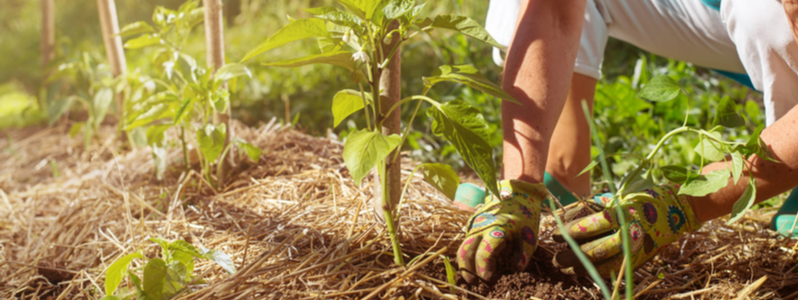Three Reasons Vegetation Control Matters in the Fall and Winter

There is no arguing with the fact that vegetation control is a constant job during the spring and summer months. Grass and weeds seem to grow so quickly during those months that you may find it difficult to keep up. Fortunately, that constant fight against vegetation seems to slow as the cooler weather of fall moves in. However, the fact that the vegetation turns brown and growth stalls does not mean that vegetation control ceases to matter. You need to make sure that the vegetation growth on your property is under control as the fall and winter approach because overgrown vegetation can cover signs of problems, allow rodents to hide, and cause damage to your property.
Overgrown vegetation can cover signs of problems
It may be tempting to skip the last mowing session (or two) of the summer as fall starts to move in. You know that the cooler weather will stop the growth cycle and provide you with a break from the work. Resist that temptation! Allowing your vegetation to remain overgrown through the fall and winter months can cover signs of problems. For example, a small amount of standing water can easily be hidden by overgrown vegetation. Standing water can point to a water leak, drainage issues, or even sewer seepage. Any of these issues can lead to additional problems if they are not addressed quickly. Keeping your vegetation in check – even during the colder months – can help you keep a close eye on the condition of your property and avoid unnecessary issues.
Overgrown vegetation can allow rodents to hide
Leaving your vegetation overgrown through the fall and winter can lead to problems with rodents. Rodents such as mice and rats often build nests in areas with overgrown vegetation. If the areas with overgrown vegetation are close to your house it creates an opportunity for the rodents to find their way inside. Vegetation control around your home is also a way for you to protect your property from pests.
Overgrown vegetation can cause damage to your property
In some situations, overgrown vegetation can actually cause damage to your property. The root systems of some types of plants can damage pipes and foundations when they are allowed to grow unchecked. Trees and large shrubs that are not trimmed properly have the potential to cause damage to your home. Wood from a dead or dying tree can become infested with termites and increase your home’s susceptibility to the pests. There are a variety of ways that overgrown vegetation can lead to problems for your home.
There are serious risks associated with ignoring the overgrown vegetation around your home during the fall and winter. The best way to avoid those risks is to deal with the overgrown vegetation as soon as possible. If you need help with the process, get in touch with the pros at The Experienced Gardener.


